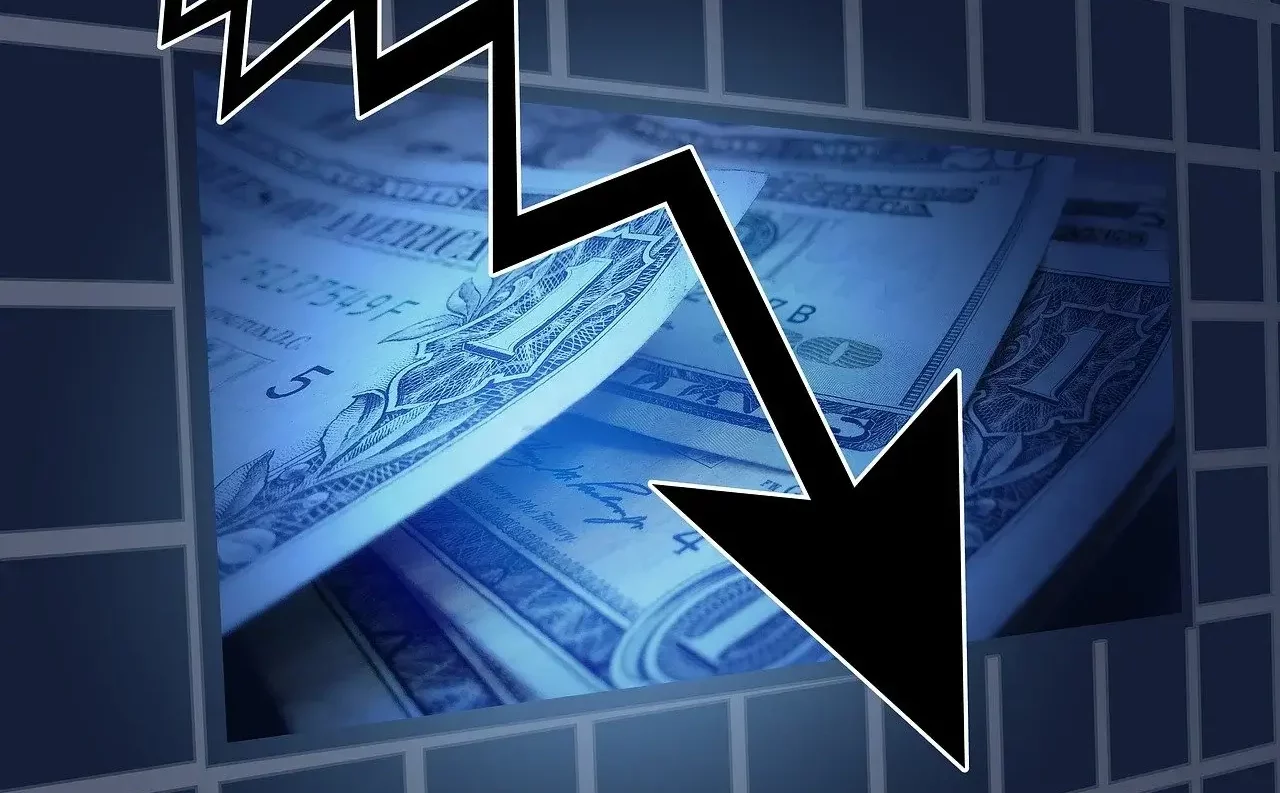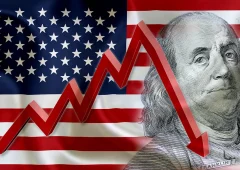Top Economist Warns of Recession and Rising Inflation
03.08.2024 9:00 2 min. read Alexander Stefanov
Peter Schiff, an outspoken critic of Bitcoin, has warned that the United States is now in a recession and anticipates a significant increase in inflation.
This situation is expected to influence the Federal Reserve’s rate-cut decisions, especially in light of recent employment data that has heightened expectations for a substantial rate reduction.
Schiff highlighted troubling economic indicators, noting that only 114,000 jobs were added in July—the smallest gain since December 2020 and far below the anticipated 175,000. The unemployment rate also climbed to 4.3%, the highest since October 2021. He criticized current methods for measuring inflation and unemployment, suggesting that the combined “Misery Index” is higher now than during most of the 1970s. Schiff also criticized current economic policies, dubbing them a disaster that is underreported by the media.
The disappointing job numbers have fueled speculation about the Federal Reserve’s next steps, with some investors now expecting a 50 basis point rate cut in September, up from the previously expected 25 basis points. Schiff cautioned that while such cuts might increase inflation, they wouldn’t necessarily benefit the economy or the job market, underscoring the complex task facing the Fed.
The recent rise in unemployment and slower job growth could prompt the Federal Reserve to adopt more accommodative policies, including rate cuts aimed at stimulating economic activity. Such moves could have notable implications for cryptocurrencies. Lower interest rates typically diminish the appeal of traditional savings and fixed-income investments, driving investors to seek higher returns in alternative assets like cryptocurrencies.
According to the CME FedWatch Tool, there is now a 68% chance of a 50 basis point rate cut by the Federal Reserve in September. Additionally, the odds of three rate cuts in 2024 have increased following the latest job data, suggesting a cooling labor market.
-
1
Billionaire Slams Meme Stock Hype and Sounds Alarm on U.S. Fiscal Health
15.06.2025 18:00 2 min. read -
2
Robert Kiyosaki Predicts 2025 “Super-Crash,” Urges Hoarding Gold, Silver, and Bitcoin
23.06.2025 13:31 2 min. read -
3
Billionaire Investor Sees Dollar Crash If Key Support Breaks
18.06.2025 15:00 1 min. read -
4
Nassim Taleb Says Global Trust Is Shifting from the Dollar to Gold
22.06.2025 17:00 1 min. read -
5
U.S. Recession May Already Be Locked In, Economist Warns
23.06.2025 12:00 1 min. read
What Brian Armstrong’s New Stats Reveal About Institutional Crypto Growth
Coinbase CEO Brian Armstrong has spotlighted a significant acceleration in institutional crypto adoption, driven largely by the surging popularity of exchange-traded funds and increased use of Coinbase Prime among major corporations.
Whales Buy the Dip as Retail Panics: This Week in Crypto
The latest market turbulence, fueled by geopolitical tensions and investor fear, offered a textbook case of how sentiment swings and whale behavior shape crypto price action.
What Will Happen With the Stock Market if Trump Reshapes the Fed?
Jefferies chief market strategist David Zervos believes an upcoming power shift at the Federal Reserve could benefit U.S. equity markets.
U.S. Bank Advises Clients to Drop These Cryptocurrencies
Anchorage Digital, a federally chartered crypto custody bank, is urging its institutional clients to move away from major stablecoins like USDC, Agora USD (AUSD), and Usual USD (USD0), recommending instead a shift to the Global Dollar (USDG) — a stablecoin issued by Paxos and backed by a consortium that includes Anchorage itself.
-
1
Billionaire Slams Meme Stock Hype and Sounds Alarm on U.S. Fiscal Health
15.06.2025 18:00 2 min. read -
2
Robert Kiyosaki Predicts 2025 “Super-Crash,” Urges Hoarding Gold, Silver, and Bitcoin
23.06.2025 13:31 2 min. read -
3
Billionaire Investor Sees Dollar Crash If Key Support Breaks
18.06.2025 15:00 1 min. read -
4
Nassim Taleb Says Global Trust Is Shifting from the Dollar to Gold
22.06.2025 17:00 1 min. read -
5
U.S. Recession May Already Be Locked In, Economist Warns
23.06.2025 12:00 1 min. read


